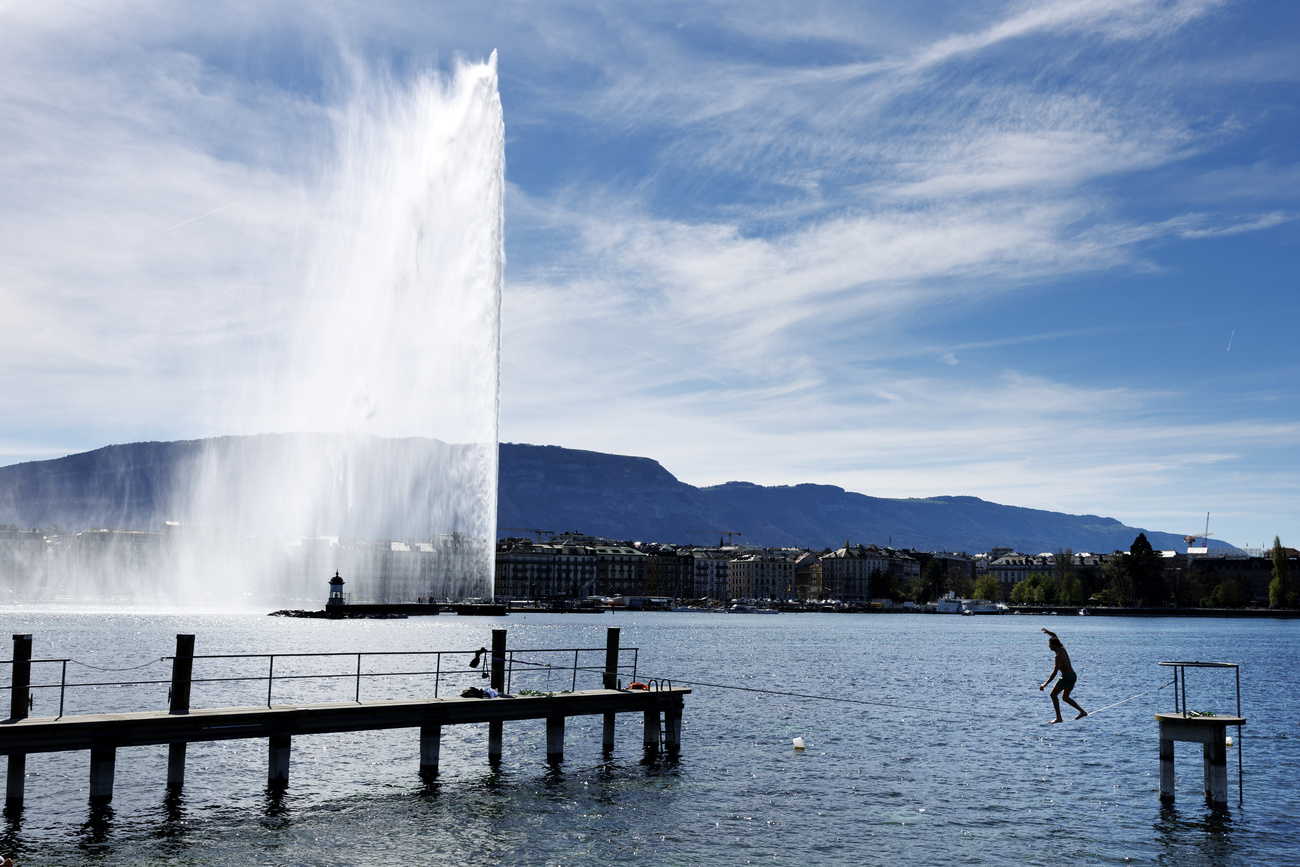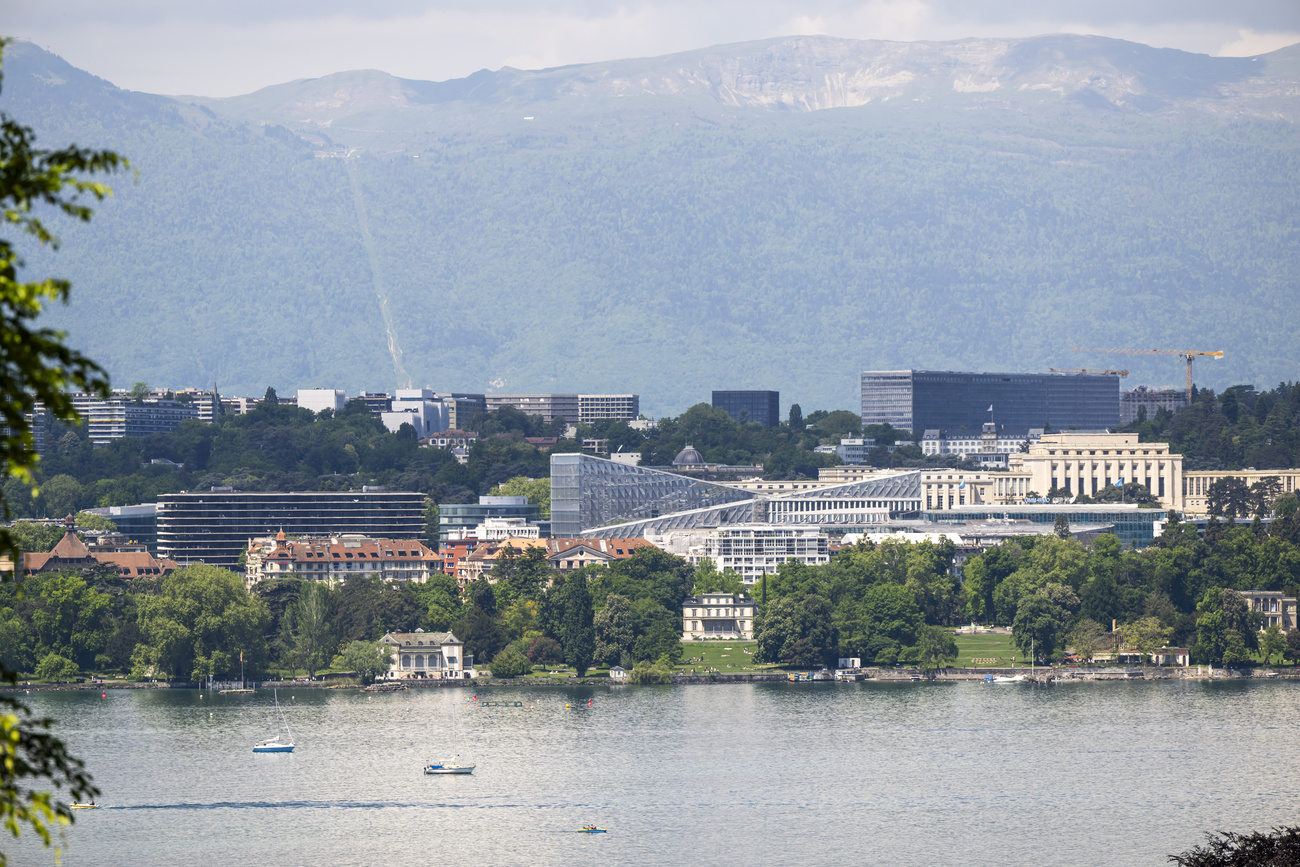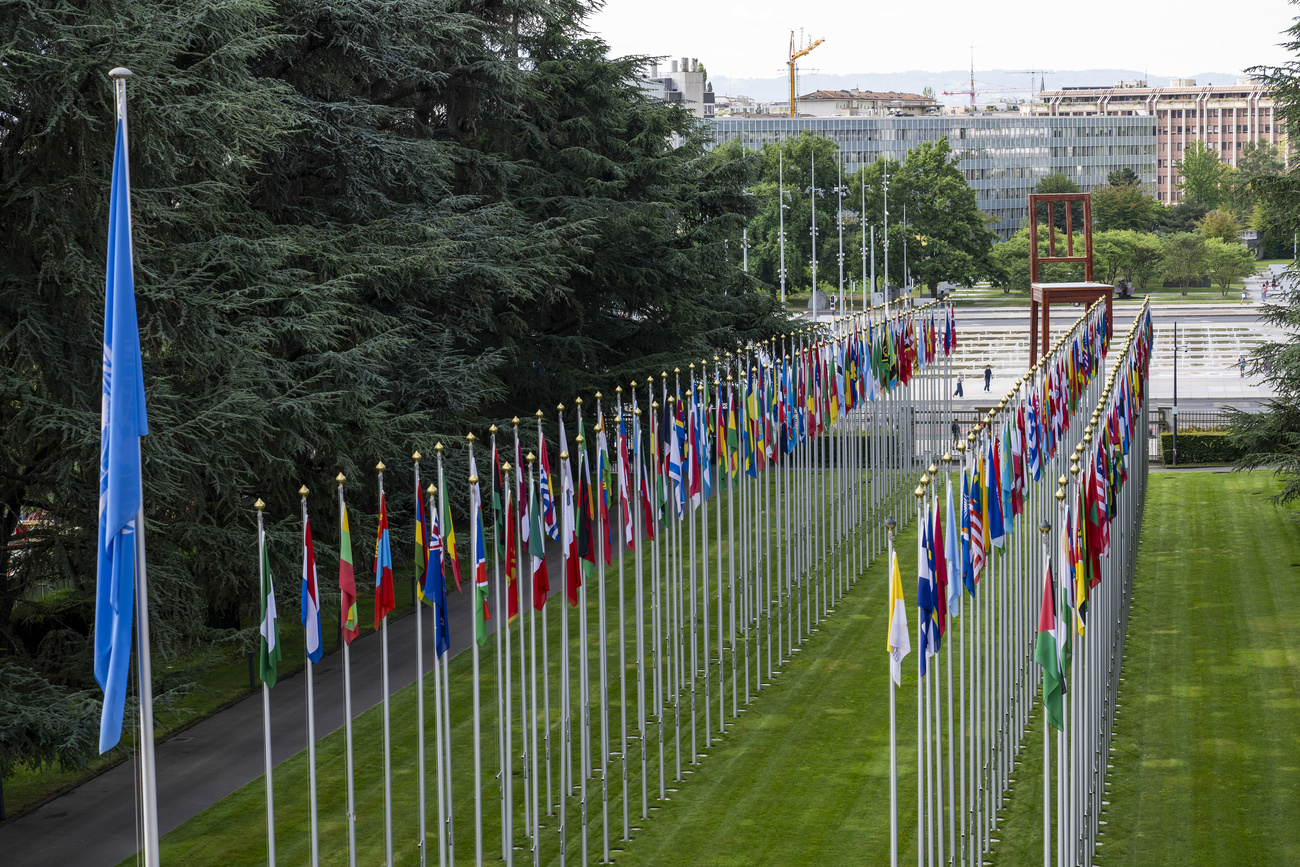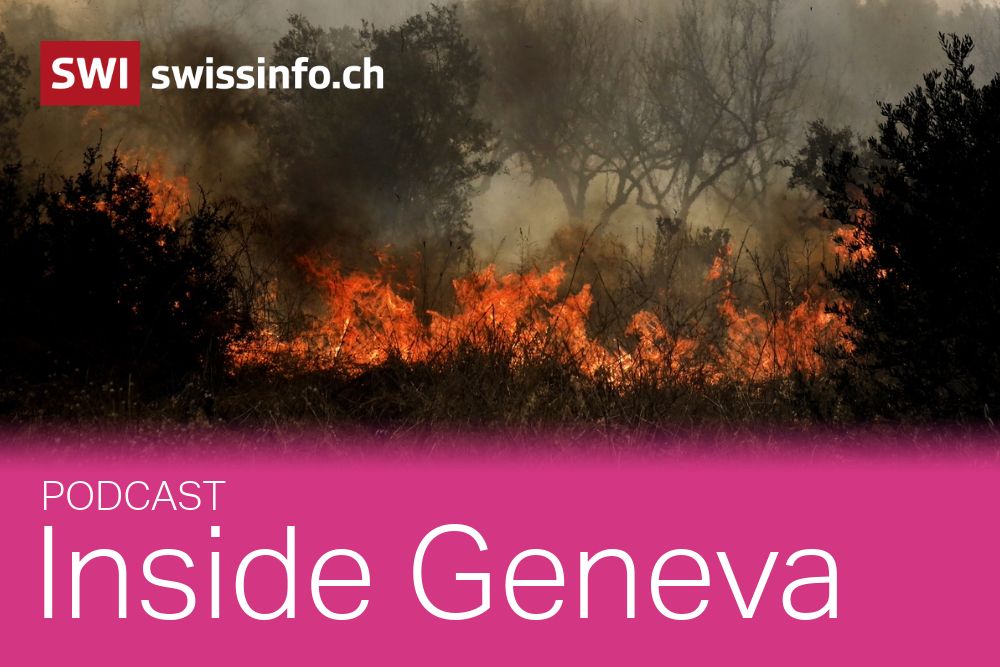
Ripple effect of aid freeze becomes real in Geneva

Six months after the Trump administration’s dramatic freeze on US foreign aid, and amid broader global cuts to international cooperation budgets, Geneva is beginning to reckon with a new reality: its multilateral core is under serious pressure.
“It’s not just a temporary disruption,” said Yannick Roulin, Director of the International Geneva Welcome Centre (CAGI). “It’s a major upheaval. We’re not facing a small crisis, but a long-term paradigm shift.”
Barely sworn in, the administration of US President Donald Trump announced an 83% cut to the country’s foreign aid budget of $71.9 billion (CHF63.4 billion). The cut impacted funding of aid projects worldwide, including in Geneva, home to hundreds of NGOs, many of them dependent on the US for funding. The US is the largest public donor to Geneva-based organisations, accounting for over a quarter (26.3%) of all donations.
Trump’s decision is not an isolated case. It’s part of a broader global retreat from international aid on the back of mounting debt and the need for countries to find money to increase their defence spending, among other priorities. The United Kingdom, Geneva’s second-biggest public donor, recently slashed its development aid budget by 40%, while Switzerland cut its own contributions by 5.6%.

2,500 jobs lost and counting
Roulin estimates that more than 2,500 positions have been eliminated across international organisations in Geneva, or should soon be. These organisations employed a total of 28,962 people in 2024. These cuts include unrenewed contracts, suspended recruitments and direct layoffs. Cuts to NGOs, which had 3,436 employees in 2024, are not accounted for in this number, as their data is harder to quantify.
Affected organisations include the International Committee of the Red Cross (ICRC), the UNHCR (United Nations High Commissioner for Refugees), and other specialised UN agencies, some of which are beginning to restructure or relocate operations to lower-cost countries.
“There is fierce competition,” Roulin said. “Countries like Rwanda, Kenya, Qatar, or even some EU states like Hungary or Spain are actively proposing themselves as new bases.”

More
International Geneva in numbers
NGOs, which are often reliant on both US and European funds, are also scaling back. “Many are reducing their activities, cutting staff, and subletting office space,” said Roulin. “Some have simply ceased some Geneva-based operations.”
Despite this, no major NGO closures have been confirmed yet.
Impact on Geneva’s real estate and hospitality industry
According to the Geneva Real Estate Outlook 2025 by Wüest Partner, a real estate consultancy based in Zurich, international staff currently occupy over 9,500 apartments in the canton, for which they pay almost twice the rent compare to an average person. In a scenario in which 20% of them were to leave Geneva, up to 2,500 apartments could be vacated. However, experts stress this would still fall short of resolving Geneva’s chronic housing shortage.
Christophe Aumeunier, secretary-general of the Geneva Chamber of Real Estate, cautioned: “From a real estate perspective, 2,000–2,500 vacant apartments may feel like a lot, but Geneva would need 10,000 more units to rebalance a saturated housing market.”
Listen to our podcast:

More
Inside Geneva: pandemics and climate change, can multilateralism still work?
As for hotels, a survey conducted by Genève Tourisme shows that 37% of them depend on international organisation clientele for over 9% of their bookings. Nearly half (49%) expect a 10–40% drop in related reservations this year and next. Adrien Genier, director of Genève Tourisme, said: “A net drop of over 6% in overnight stays was recorded in May. We are very preoccupied with the upcoming autumn season, between September and November.”
Adapting to a changing world
To help Geneva adapt, the canton and Fondation Wilsdorf, a Geneva-based foundation focused on social welfare, set up the Fondation pour l’Adaptation de la Genève Internationale (FAGI). It was endowed with CHF50 million ($62 million) to help “Geneva International evolve in this new context,” said Martine Brunschwig Graf, head of FAGI.
“The point is not to replace lost US subsidies,” she said. “We aim to fund projects that enable restructuring, innovation and shared infrastructure.”
Priority areas include cost-sharing among organisations, digital transformation (for example, centralised conference tools, AI-enabled workflows) and ensuring the continued participation of low-income countries in global forums.
To ease the blow for laid-off international staff, CAGI, the Swiss government and the canton organised a special event last June to introduce the Swiss job market and reorientation options. Over 1,200 people attended. “These are highly qualified professionals who’ve often lived here for years,” said Roulin. “We want to help them stay and match them with private-sector needs.”
Geneva’s role amid shifting geopolitical priorities
Despite the crisis, experts Swissinfo spoke to remain optimistic. “Geneva will remain important,” Roulin said. “Its strength lies in the dense ecosystem of actors working across sectors – human rights, health, trade, environment. There’s no other city like it.”
Vincent Subilia, director-general of the Geneva Chamber of Commerce, notes that Geneva recently hosted trade talks between China and the US, nuclear talks between Europe and Iran, and that the French President Emmanuel Macron supports the creation of a platform of negotiations between Ukraine and Russia in Geneva. “Geneva’s DNA is still strong, and everyone has understood it needs to be defended,” says Subilia.
Still, the pressure to adapt is real. “Many member states are shifting priorities, with more spending on defence and less on aid,” Roulin added. “Multilateralism is weakening.”
Subilia refuses to be alarmist but admits that “we are witnessing the erosion of a model we’ve taken for granted”.
The coming months will be decisive. FAGI has just launched its website where NGOs can share their projects. The city continues to campaign internationally to retain key organisations. And residents are watching closely.
As Graf from the FAGI put it: “You can’t stop the transformation. But you can shape it. That’s our job now.”
What is your opinion? Join the debate:
Edited by Imogen Foulkes/vm/gw
More

In compliance with the JTI standards
More: SWI swissinfo.ch certified by the Journalism Trust Initiative


























You can find an overview of ongoing debates with our journalists here . Please join us!
If you want to start a conversation about a topic raised in this article or want to report factual errors, email us at english@swissinfo.ch.